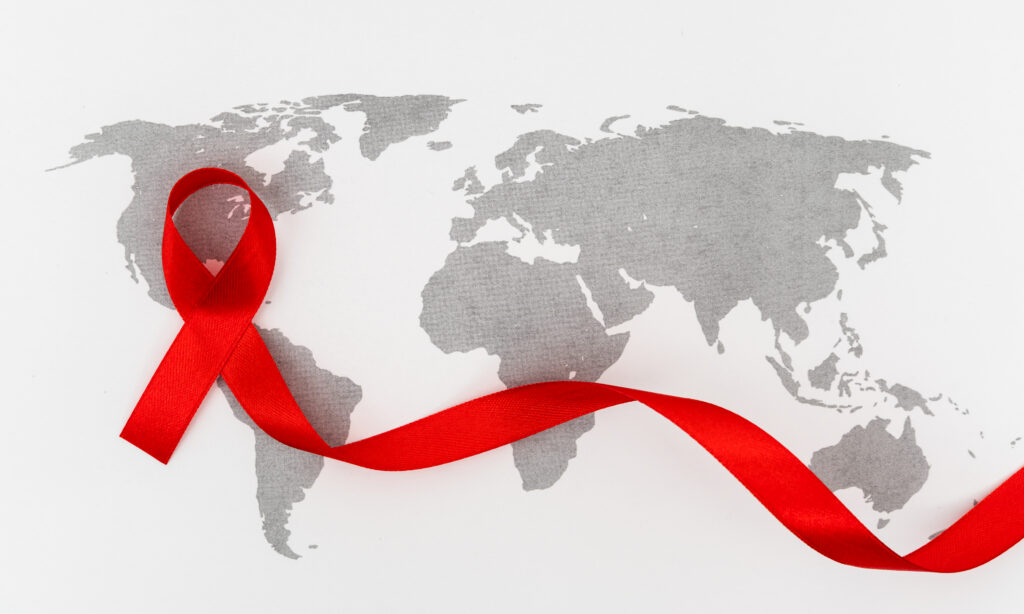Marking World AIDS Day With Education
Since 1988, World AIDS Day has been observed internationally on December 1 as a day of solidarity and awareness for those affected by HIV/AIDS. The Florida Department of Health in Polk County wants to eliminate the spread of HIV, provide facts about HIV/AIDS to our communities, and promote testing and treatment.
What Is HIV/AIDS?
HIV (human immunodeficiency virus) is a virus that attacks the body’s immune system. If HIV is not treated, the disease can progress to AIDS (acquired immunodeficiency syndrome) which is the most advanced stage of HIV infection. People with AIDS have damaged immune systems and are prone to other serious illnesses.
Acute HIV infection symptoms can vary from person to person. Some people have flu-like symptoms. Some people have no symptoms at all. Symptoms could indicate illnesses other than HIV; the only way to know if you have acute or chronic HIV is by getting tested.
At this time, no cure has been found for HIV. But HIV is preventable and, for those who get HIV, it can be controlled with HIV treatment. Treatments and outcomes have advanced greatly in the decades since HIV/AIDS was first identified. People with HIV who are compliant with prescribed treatment can live full healthy lives without spreading HIV to their partners.
HIV testing is very important because it can lead to people with HIV getting appropriate medication. Taking HIV medication as prescribed is vital and lifesaving since it can slow and stop the progression of this disease.
How Does HIV Spread?
HIV is most commonly spread by unprotected anal or vaginal sex and by sharing needles/syringes. Unprotected sex means sex without a condom or HIV medicine that would prevent and treat HIV. It’s only spread by direct contact with body fluids (blood, semen, rectal and vaginal fluids, and breast milk) of someone who has HIV.
Prevent HIV
There are several ways to protect yourself and others from getting HIV. You should always use condoms correctly and you should use them every time you have anal or vaginal sex. You should avoid sharing needles and syringes. People at risk for getting HIV can take medication called PrEP (pre-exposure prophylaxis) that will prevent them from contracting HIV. There’s also emergency medication called PEP (post-exposure prophylaxis) that people can take within 72 hours of possible HIV exposure.
Living With HIV
If you’ve been diagnosed with HIV, get into care as soon as possible and start taking your HIV medications as prescribed. If you do that, the HIV virus in your blood (the viral load) will, ideally, become undetectable. It’s important to remember that a person whose viral load is undetectable can’t transmit HIV to their partners via sex nor any other HIV transmission method. Undetectable equals untransmittable!
Testing
The only way to know if you have HIV is to get tested for HIV. You can protect yourself by getting tested regularly if you engage in behaviors that could lead to getting HIV.
The CDC recommends that individuals between the ages of 13 and 64 get tested for HIV at least once as part of routine health care and those with risk factors get tested more frequently. A general rule for those with risk factors is to get tested at least annually.
For HIV testing and treatment, please call the Department of Health in Polk County at 863-519-7900.
by Dr. JOY JACKSON, MD, Director of DOH-Polk
About the Author: Dr. Joy Jackson, an internal medicine physician, serves the community as director of the Florida Department of Health in Polk County (DOH-Polk). For more information about DOH-Polk, visit mypolkhealth.org. Follow DOH-Polk on Twitter at twitter.com/FLHealthPolk.
